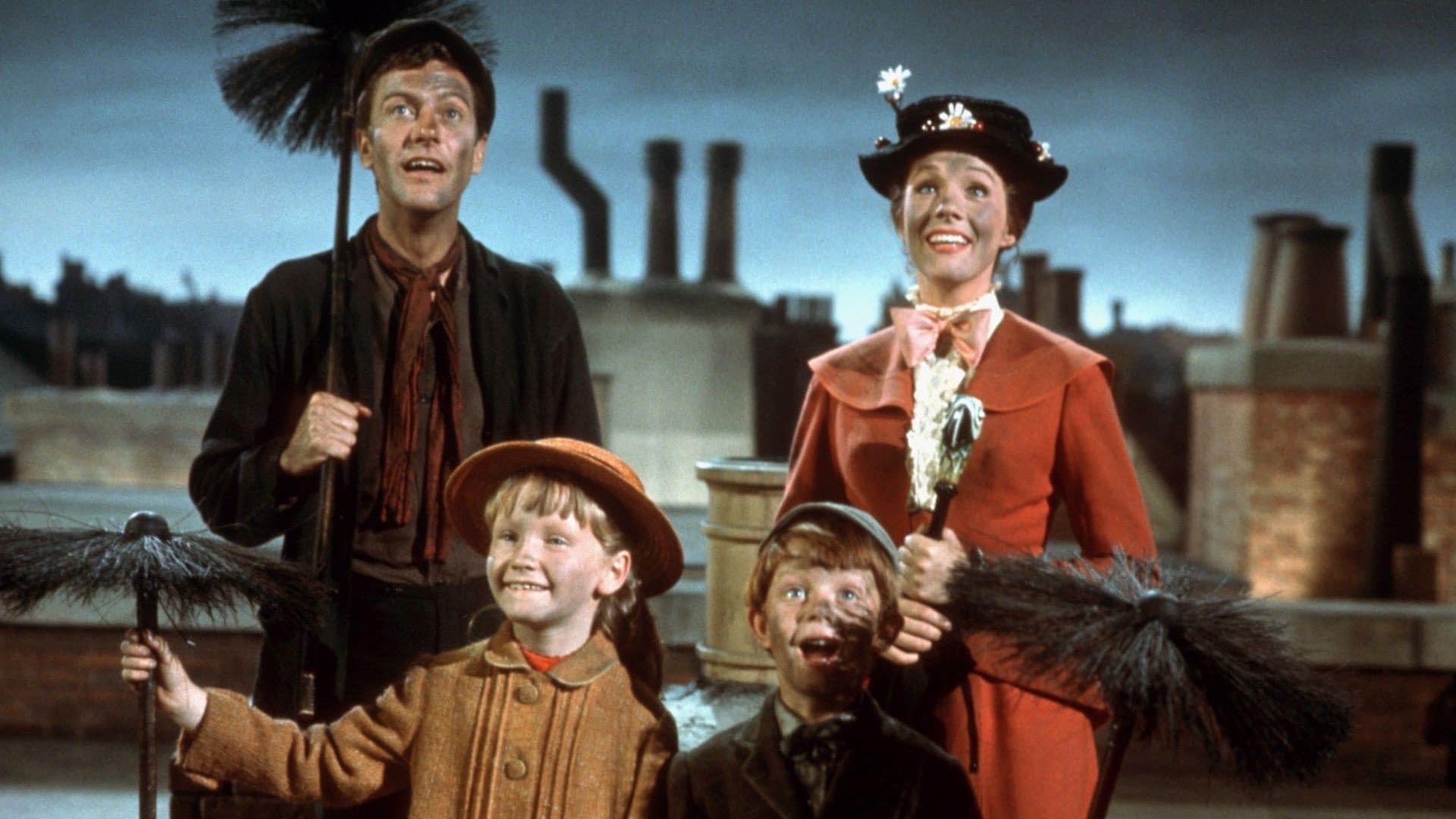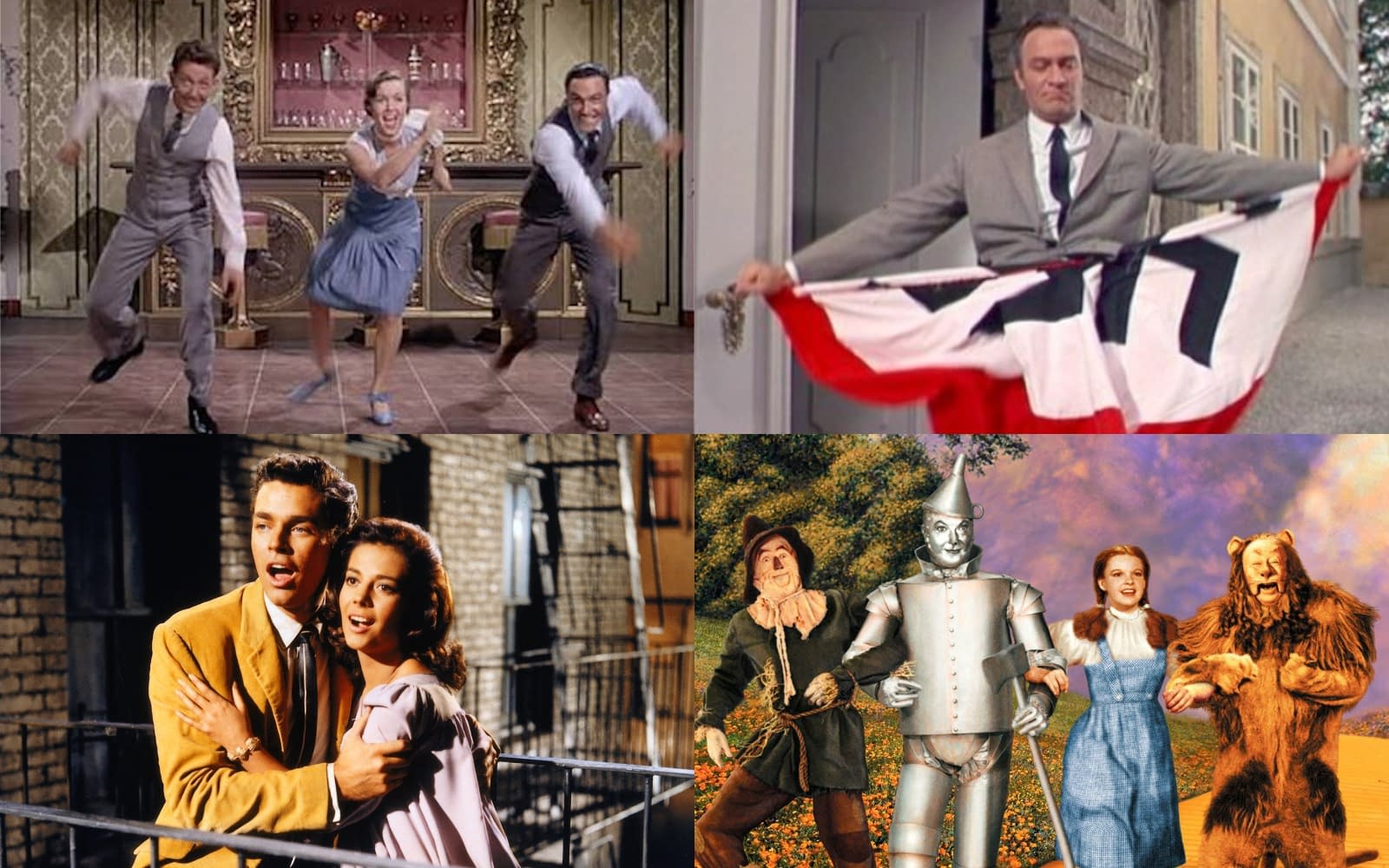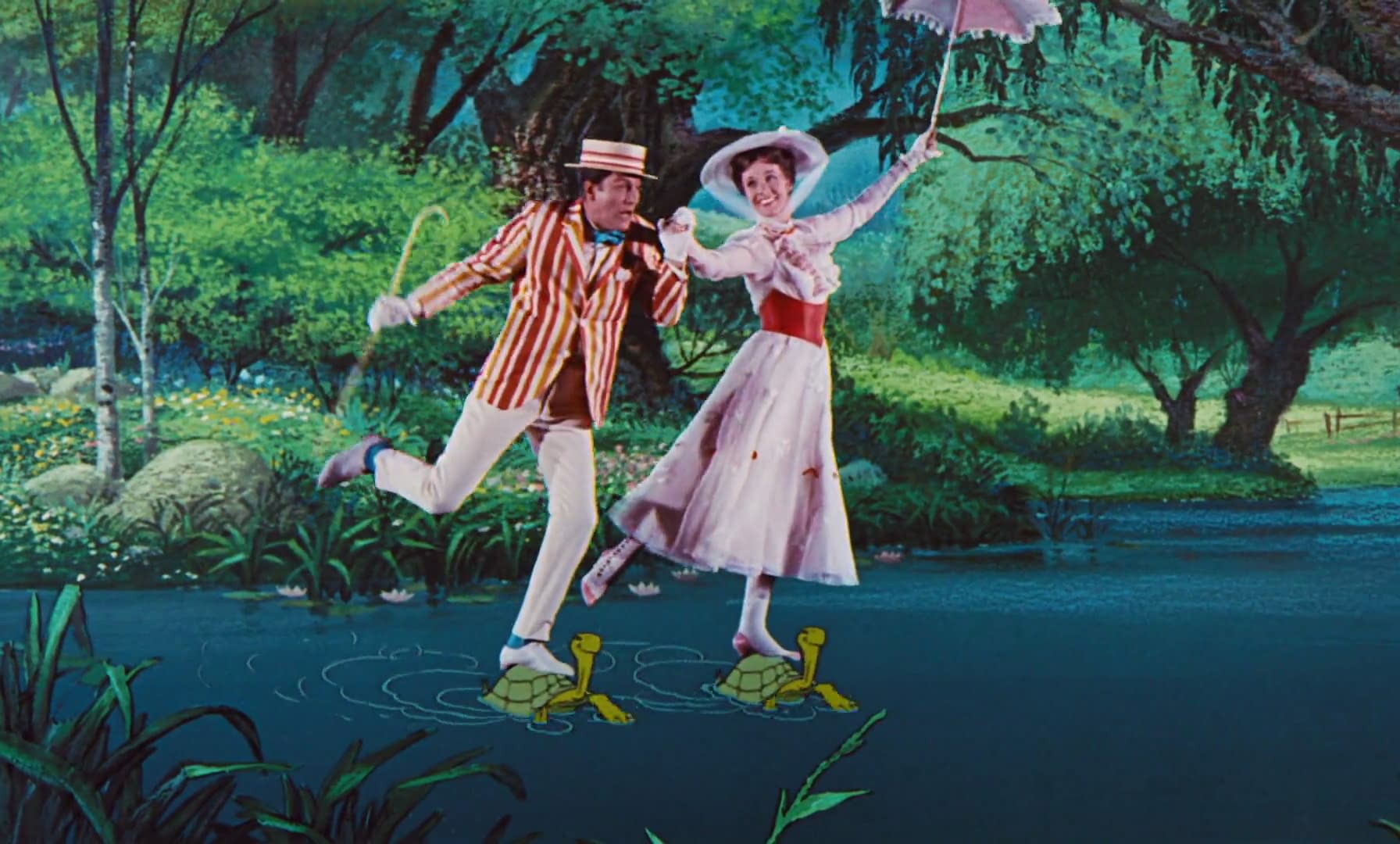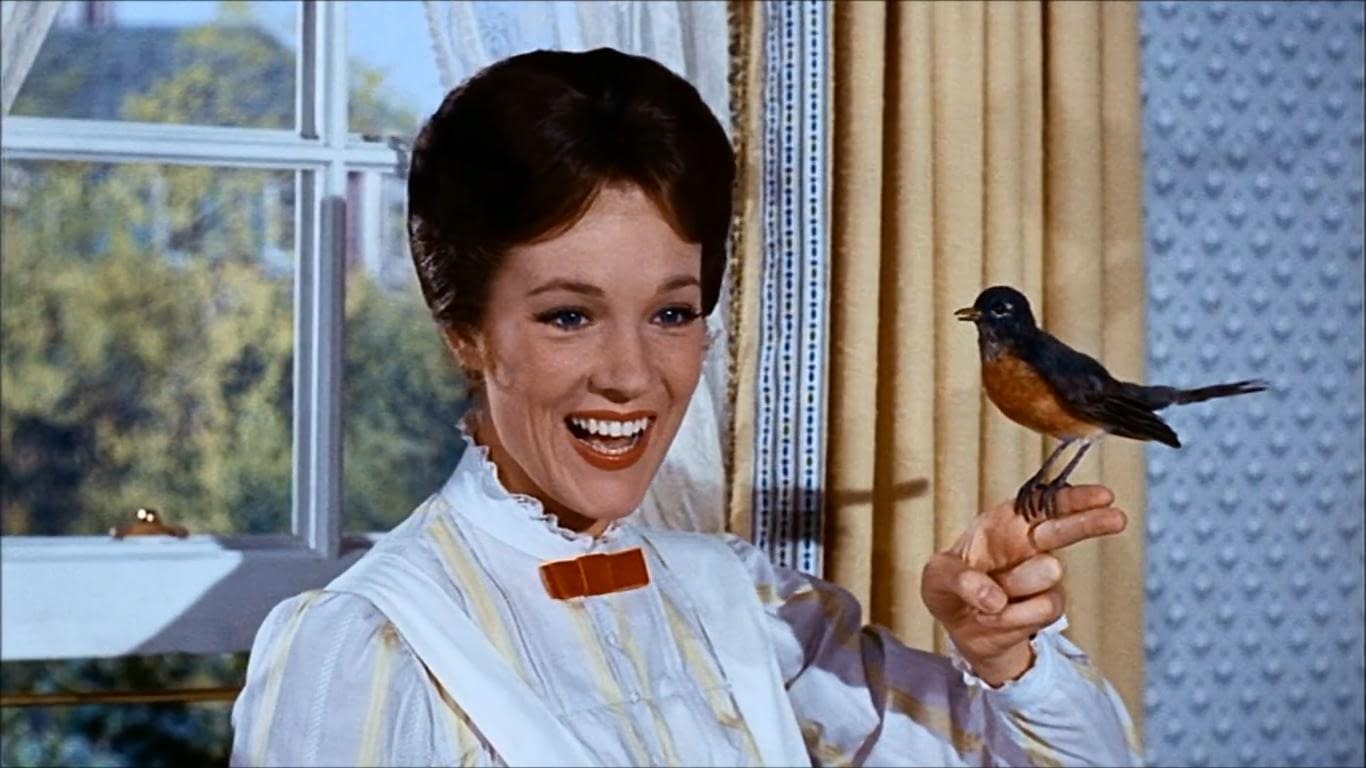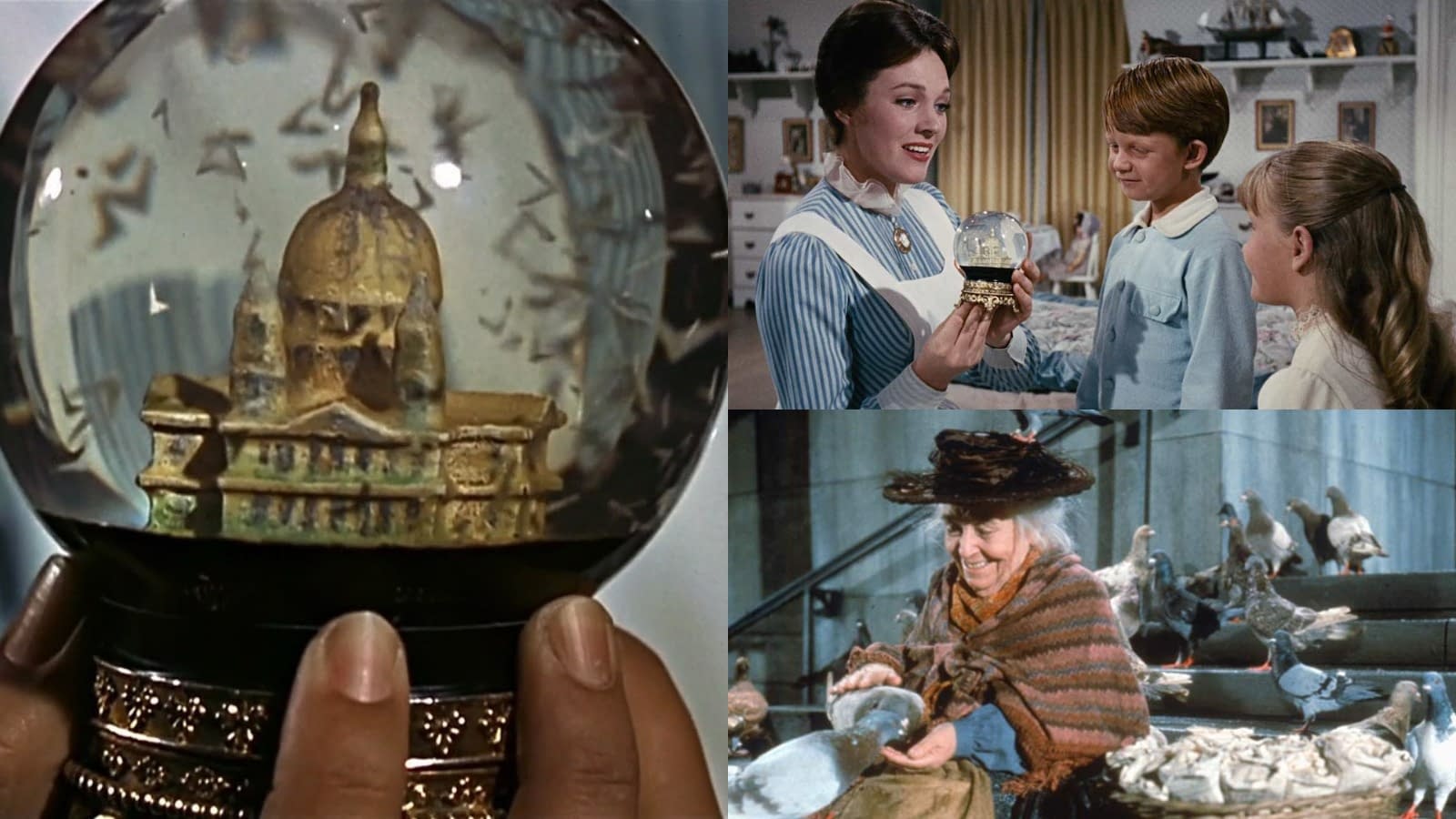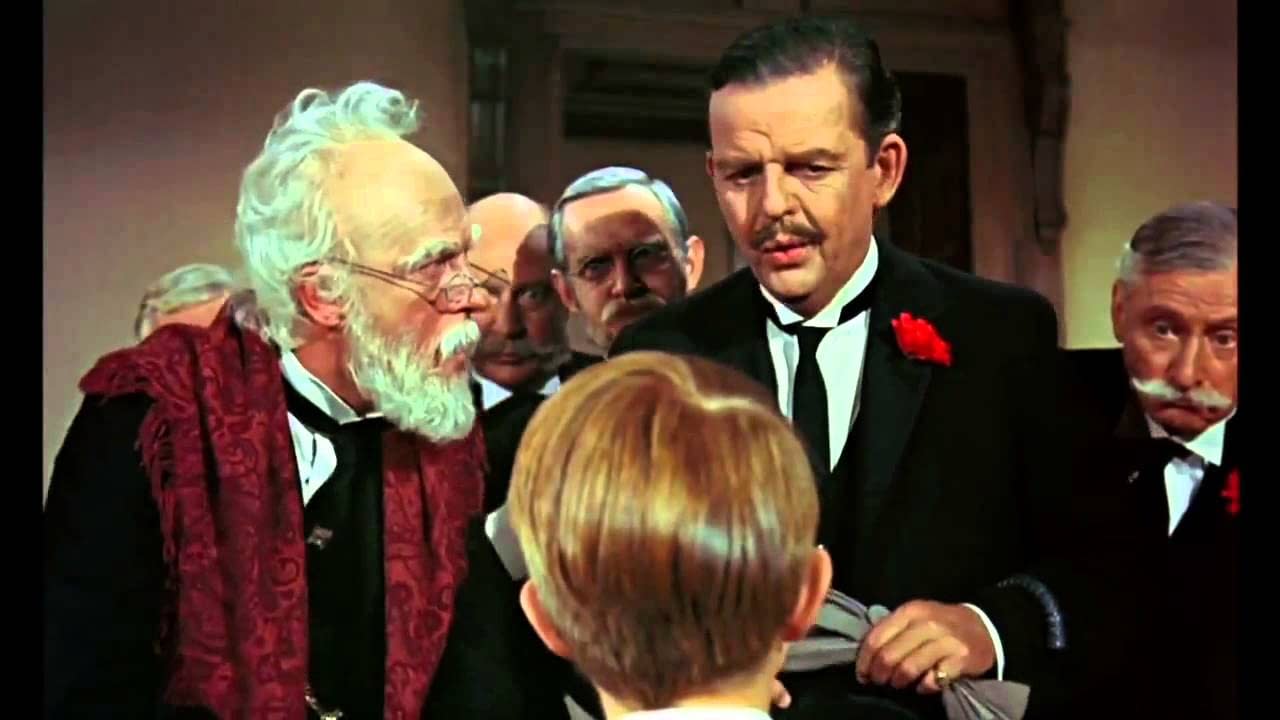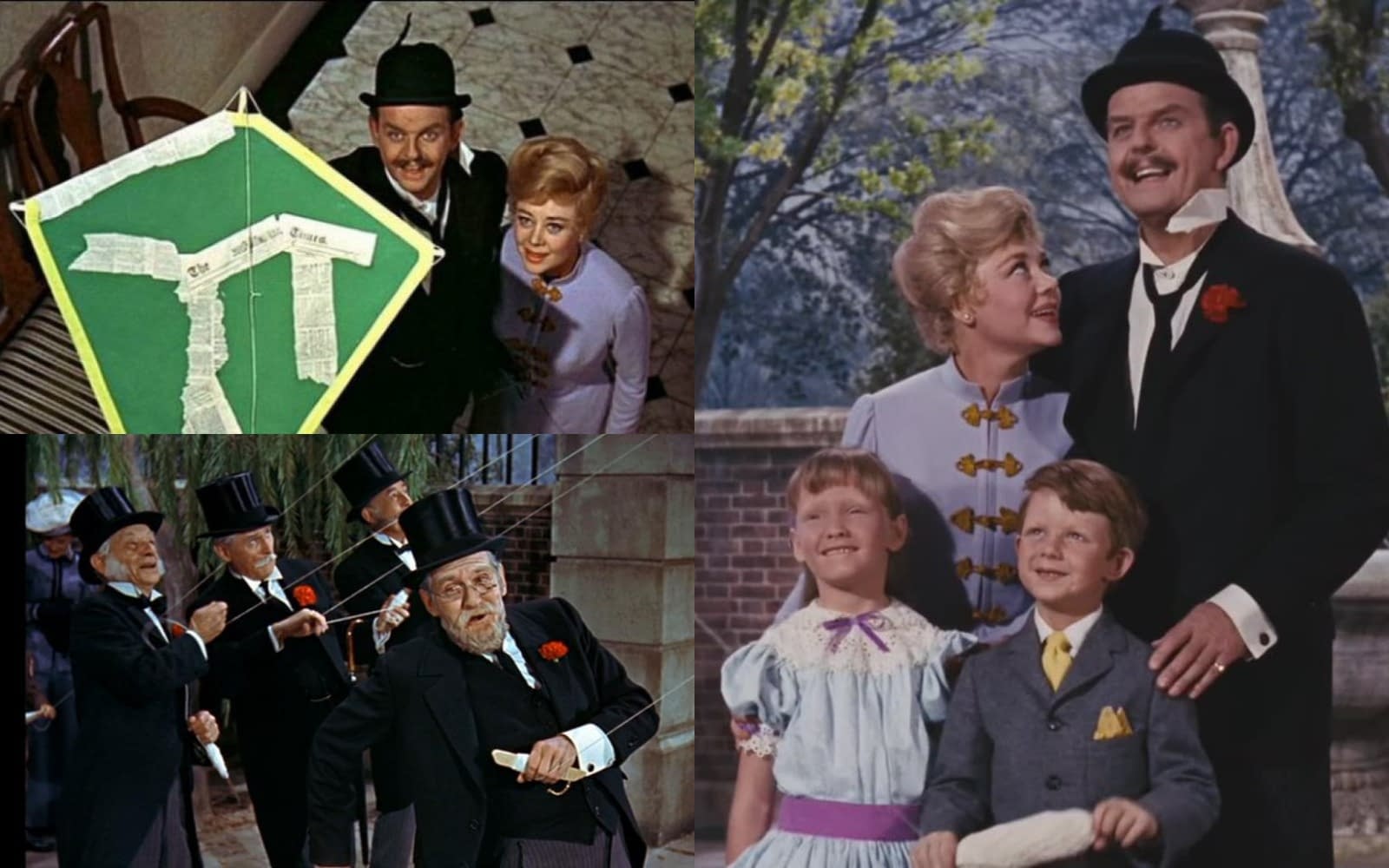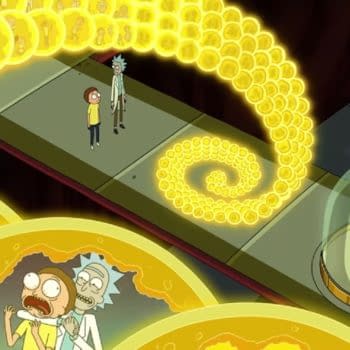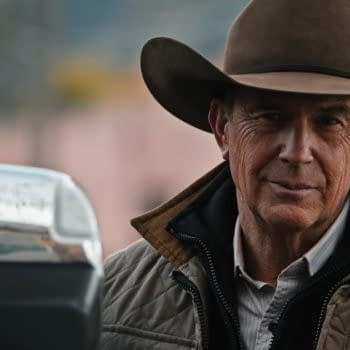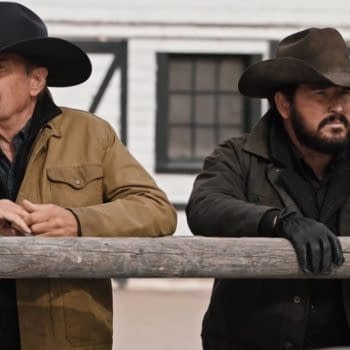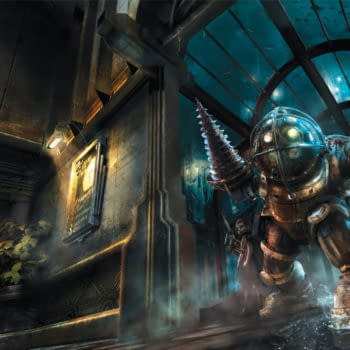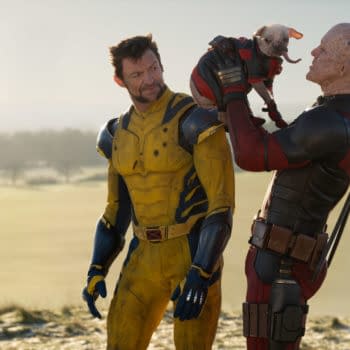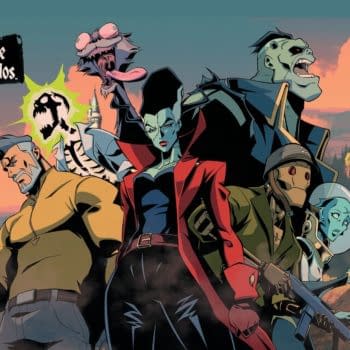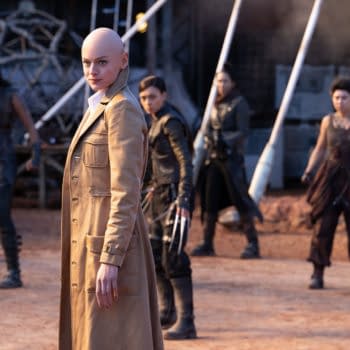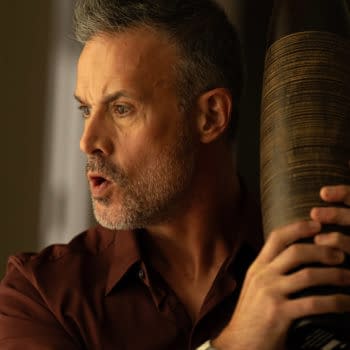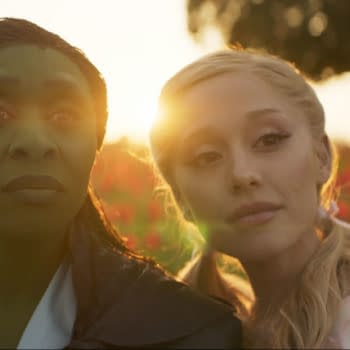Posted in: Disney, Movies | Tagged: dick van dyke, disney, Julie Andrews, mary poppins
'Mary Poppins' is the Greatest Movie Musical of All Time and This is the Hill I'm Willing to Die On
Mary Poppins is the best. Fight me.
Just below an assortment of films with Star Wars and The Godfather in their titles, Mary Poppins has been in my top 5 films of all time for as long as I can remember having a list.
Ironically, it wasn't a childhood favorite. While I grew up inundated with Disney films, the story of the magical nanny didn't really register until I was an adult– and understood the incredible adult themes of this magnum opus of Walt Disney's that he worked so hard to bring to screen.
In his final days on earth, dying a painful death of lung cancer, desperately trying to get The Jungle Book finished, and casting a new series of live action films about a young man named Dexter Riley starting with The Computer Wore Tennis Shoes, Walt would call Richard and Bob Sherman to his office and have them play Feed The Birds.
Why? What was it about that song that made it the thing on Disney's mind as he faced the end of his mortal existence?
We'll get there. I've divided this into several pieces:
1- Why all your other favorite movie musicals suck
2- Feminism and A Jolly Holiday With You, Bert (vs. Baby It's Cold Outside)
3- Feed the Birds vs. Fidelity Fiduciary Bank
4- Go Fly a Kite
1- Why all your other favorite movie musicals suck
Let's start at the very beginning, a very good place to start. Sorry, wrong Julie Andrews musical.
I've had this argument with numerous other cinephile friends, and they're always incredulous. Mary Poppins? What about Singing in the Rain, West Side Story, The Sound of Music, or Grease? Ok, first, Grease and West Side Story can suck it. They're terrible and they've always been terrible.
The Sound of Music… there's an argument there because Julie Andrews. And her presence in both films really put them both up there, but it's precisely because what she does in both films is so great, that they shine. But Maria Von Trapp is a far less complex character than Mary Poppins. The songs are of lesser quality, and despite having a backdrop of being anti-Nazi that is now (surprisingly) socially relevant again, the film's message is less stirring than Poppins'.
And then there's Singing in the Rain, which most groups like AFI will rate higher on their lists of classic films. So, yes, that's no slouch. But at it's core, it's a sort of basic movie. Hollywood has always been in love with a movie about making movies. And when you break it down, the film is merely an excuse to let Gene Kelly and Donald O'Connor perform their respective schticks on a grand stage. Not that there's anything wrong with that. Indeed, it makes a close second because it is truly great.
And close to or tied with that is The Wizard of Oz, the only other film that works on multiple levels and which has aged as well as Poppins has. It's also the only other musical that competes with Poppins on its music. But Dorothy's journey is still just about a girl trying to find her way home and the new friends she finds on the way.
But Mary Poppins is about so much more– charity, materialism, and most importantly– family. Singing in the Rain has never made me cry. Mary Poppins gets me. . . every time.
2- Feminism and A Jolly Holiday With You, Bert (vs. Baby It's Cold Outside)
Mary Poppins is a feminist masterpiece. From an explicit subplot about Mrs. Banks being a suffragette, this is pretty surface-level clear. ("No more the meek and mild subservients we! We're fighting for our rights, militantly! Never you fear!") Mary is also here to smash the patriarchy of Mr. Banks, but we'll get to that.
Mary as a character is also a powerful, magical woman with agency of her own. She comes and goes as she pleases, even under the guise of giving "the man of the house" Mr. Banks what "he" wants. In fact, she's always in control of every situation she's in, and she is the inciter of every action in the film.
Even better, she has a sense of whimsy about all of it. When the children try to tell their parents about how they jumped into a sidewalk chalk painting and went fox hunting, she pretends like none of it happened, and is even a bit faux-offended, as though she would never do such a thing!
She gives the children medicine to make sure they don't a cold, but it's magic– not just a spoonful of sugar, but it actually tastes like something you, the person drinking it, like. When she takes some herself, it's telling that she identifies the flavor as "rum punch." Mary Poppins is on the sauce. And she hiccups after taking it. More like a shot than a spoonful, Mary. We see what you're doing. And we approve.
She is nurturing and unfailingly kind. But she is also strong, in charge, and no nonsense. She gets @#$% done.
What sort of job was Katie Nana doing that the children's' nursery was so messy? Mary Poppins shows up, and within minutes, has the kids doing the work, by using the old trick that singing a song while you do it makes it seem not so bad.
Mary Poppins was the first female superhero. She was a Hogwarts graduate before JK Rowling was even born. (And she was definitely a Ravenclaw. I will also fight people on this point.)
You can also make the case that Mary Poppins was explicitly asexual, which would make this a major victory for representation as far back as 1964 for the Ace community. One thing author P.L. Travers was adamant about was that there was absolutely no romantic interaction between Mary and Bert. They were friends only. Mary did not have romantic partners.
So along comes the song "Jolly Holiday," specifically in its third verse when Mary turns the tables and starts singing to Bert the chimney-sweep. This song has been on my mind as a perfect counterpoint to the inane annual "debate" over the song "Baby It's Cold Outside." He's been singing to her about when you hold Mary's hand, you feel so grand, your heart starts beating like a big brass band. He's interested. But Mary's going to tell him how it is. First, let him know how awesome he is.
"Oh it's a jolly holiday with you, Bert.
Gentlemen like you are few.
Though you're just a diamond in the rough, Bert
Underneath your blood is blue."
Ok, so Bert's a good guy. And Mary is making an explicit swipe at classism: while Bert is a working class guy, here in the sidewalk drawing animated world, he is a "gentleman" whose "blood is blue" (a sign of lineage from the English aristocracy).
But here's where it gets really good:
"You'd never think of pressing your advantage.
Forbearance is the hallmark of your creed.
A lady needn't fear when you are near.
Your sweet gentility is crystal clear.
Oh it's a jolly holiday with you, Bert.
A jolly, jolly holiday with you."
Mary is not at all interested in a romantic relationship. But she's still singing and dancing and dining with Bert. And she knows he is a safe person who would never try anything. Dick Van Dyke's facial expressions here are pretty classic. While he's maybe a little disappointed, he doesn't feel "friend-zoned" or any other incel BS. He respects her, and the rest of the movie? He drops it. And they go on being great friends and having amazing adventures together.
Could this be in ANY starker contrast to our male singer in "Baby It's Cold Outside"? I'm sick and tired of the argument that "Oh, it was a long time ago and we can't judge."
Yes, we @#$%ing can. Because other people had it figured out. Sure, maybe it was just The Sherman Brothers and Dick Van Dyke and Walt Disney, but that's enough to say that times haven't changed that much.
Be like Bert, people. When Mary tells him she's not interested, Bert doesn't take it as "no means yes." They respect each other, Bert is a good person who respects Mary, and Mary is basically just a badass. A feminist badass.
3- Feed the Birds vs. Fidelity Fiduciary Bank
The moral fulcrum upon which the film rests is, Walt's favorite, "Feed the Birds." Why this song?
Mary has a plan. Only a few days into her work at the Banks household on 17 Cherry Tree Lane, she demands a day off, and gets Mr. Banks to agree to take the children to the bank with him– and makes him think it was his idea. (Wow– what kind of magic is this she's pulling. Imagine doing this with your boss!)
In talking to the children about the outing, she gives them tuppence, or the equivalent of about 4 cents in 2018 US dollars. She sings to them about a woman who sits on the steps of St. Paul's Cathedral asking people to feed the birds for tuppence a bag.
Come feed the little birds, show them you care
And you'll be glad if you do
Their young ones are hungry
Their nests are so bare
All it takes is tuppence from you
She's making an explicit appeal to emotion and empathy here– invoking children, home, and hearth. We know she isn't actually singing about birds. She's singing about herself. She is the one who is poor and hungry. This is her only way she has to support herself. What young ones, or other people she's responsible for taking care of, does she have at home?
The location is important in understanding the appeal Mary is making: St. Paul's cathedral. While, yes, it is an iconic London landmark, they could've chosen one of a dozen others. But they chose St. Paul's– St. Paul, perhaps best known for his writings to the Corinthians about the virtue of charity.
All around the cathedral the saints and apostles
Look down as she sells her wares.
Although you can't see it, you know they are smiling
Each time someone shows that he cares
Why would saints and apostles care whenever someone feeds the birds? Indeed, as Mr. Dawes, Sr, the elderly banker in charge of the bank where Mr. Banks works, points out, what do you get when you feed the birds? Fat birds. The birds will actually be fine without you giving them breadcrumbs. Indeed, one can argue that feeding the pigeons is bad overall for their population. Saints and apostles don't care about this. Ok, maybe St. Francis.
But what saints and apostles — specifically St. Paul — care about is charity towards other human beings. And that's what the tuppence for breadcrumbs is actually for.
Directly opposite this call for focus on the spiritual and caring for our fellow humans is an ode to selfishness and the material: "Fidelity Fiduciary Bank." The bankers tell young Michael all the ways he can spend his tuppence by investing in the bank, from railways through Africa to dams across the Nile and plantations of ripening tea. He can also buy first and second trust deeds– think of the foreclosures! (foreclosures on whom? Likely, people like the poor bird lady.) Tuppence will not only enrich him by compounding interest, but it will be the backbone of empire and colonialism. (PS– that's bad, as colonialism of this type requires exploitation of local people and resources).
This is the exact opposite of feeding the birds. Charity vs. self-interest. Spiritual vs. material. Taking care ofthe needy vs. adding to the oppression of others.
So what's a boy to do? Feed the birds and undermine capitalism? (I can hear cheers from my communist friends over there) Or invest in the bank?
But it may surprise you, dear readers– neither of these answers is actually correct. More on this in a second.
But what matters here is Michael decides he doesn't want to give the bank his money, and when he yells that they won't give him his money, it causes a run on the bank. The children run in the ensuing chaos, and Banks is left blamed for the debacle. When the children run into Bert on the street, he takes them home and offers to sweep the Banks' chimney. This of course leads to "Steppin' Time" on the roof, which is just an amazing showstopping musical number on its own, but not the moral nexus of the film, so we'll have to skip it.
When Mr. Banks returns home (It's the Master, Steppin' Time!), he ends up having a heart to heart with Bert, in a slowed down version of his "The Life I Lead" theme song from the top of the film called "A Man Has Dreams." He sees his well-ordered life now being smashed, and his dreams perhaps along with them. Most of all, he blames Poppins for doing all of this. He calls it "quite a bitter pill to take."
Bert goes in for the soft sell, identifying Mary as the one who spews nonsense that a spoonful of sugar helps the medicine (his bitter pill) go down.
Tricked YOU into taking your children on an outing! OUTRAGEOUS! A man with all the important things you have to do! SHAMEFUL! You're a man of high position, esteemed by your peers.
(sung)
And when your little tykes are cryin', you haven't time to dry their tears
And see them grateful little faces smilin' up at you
Because their dad, he always knows just what to doYou've got to grind, grind, grind at that grindstone
Though childhood slips like sand through a sieve
And all too soon they've up and grown
And then they've flown
And it's too late for you to giveJust that spoonful of sugar to help the medicine go down
The medicine go down, medicine go down
That's the part that gets me. Every. Damn. Time.
Because Mary Poppins was never here to help the children. She was here to save their father. Yes, and smash his patriarchy. From his opening moments singing "The Life I Lead" he specifically invokes the monarchy and deems his wife and children as his subjects. He walks in the door at precisely 6:01 and expects his children to be off to bed two minutes later. He will not spend a single moment with them other than patting them on the head. He is a man whose priorities are so out of whack he does not even hear when his wife mentions repeatedly that the children are missing.
Let's repeat that: he's so self-absorbed he didn't know the children were missing! And when a friendly constable brings them back, blaming the kite they ran after, Mr. Banks blames the nanny and decides she's what must be replaced. In no way should he have to spend a second engaging with them.
That's a man whose patriarchy deserves to be smashed. And it is.
Banks is sacked. But not before leaving the board of the bank with some parting words — the joke about the man with the wooden leg named Smith (What's the name of his other leg?), and Supercalifragilisticexpealidocious! He embraces the fun and whimsy Mary Poppins has brought into his family's life, and returns home in the morning a changed man.
So what good are tuppence? If they're not for feeding birds or investing in the bank, what is their use?
4- Go Fly a Kite
"With tuppence for paper and string, you can have your own set of wings."
Mr. Banks uses the coins Michael gave him to mend the kite the children chased in the opening scene. He then takes them out to the park to fly a kite as a family.
In an astounding turn, Mrs. Banks pulls out one of her suffragette sashes and affixes it to the end of the paper trapezoid, explaining, "a proper kite needs a proper tail." This would be less extraordinary if not for two things. First, earlier in the film, she asked the maid staff to help her hide her sashes because of how "the cause" infuriates Mr. Banks. Here she is literally bringing her politics out of the closet, and everyone approves. The other extraordinary thing is understanding the physics of kite-flying, it is the tail that actually helps bring an extra amount of lift. The feminist cause literally gives flight to the previously runaway kite. The Banks family, working together, flies their kite in the park.
They find themselves, coincidentally, in the park next to the younger Dawes from the bank, who reports his father "died laughing" and offers Banks his position back.
Mary Poppins, indirectly, even managed to change the direction of a conservative, crusty old imperial bank with a little bit of laughter and nonsense. But, of course, she would never admit to such a thing, even as she flies away on the wind to find another family in need.
A patriarch who learns to listen to his children and spend time with them. Tuppence spent to go fly a kite. Jokes making life a little less serious. Votes for women. A cockney chimney sweep who has as much class as the upper crust. Patriarchy and class barriers smashed. A lesson about charity being better than greed. An asexual feminist who kicks ass, whom everyone loves, and runs everything with a bit of song and magic.
For all these reasons and more, Mary Poppins is one of my personal heroes, and this is one of my favorite films of all time. But I'm not the only one.
"Dude, you look like Mary Poppins."
"Is he cool?"
"Yeah, he's cool."
"I'M MARY POPPINS, Y'ALL!"

Everyone loves Mary Poppins. Even Peter Quill and Yondu… and James Gunn.
Yes, she's cool. She's a badass feminist ace icon. And she's here to fix everything that's wrong with our souls. We're so lucky to live on a planet with as amazing a film as Mary Poppins on it.
Mary Poppins Returns opens Wednesday, December 19th. You can read Kaitlyn Booth's review of it here.
Hug your children, your pets, or whomever you love. That's the message.


